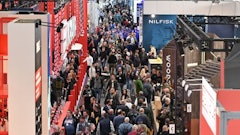A major order for 121 biofuel buses from Nobina strengthens Scania’s leading position as a supplier of vehicles that can be run on the renewable fuels available today.
“The fact that Scania can deliver reliable and cost effective buses that have engines with well-tried technology for running on gas, biodiesel and bioethanol. As a result, Scania is now easily the largest make in the Swedish bus market,” says Leif Nyström, head of Scania’s bus and coach sales in Sweden.
The order from Nobina, the Nordic region’s largest passenger traffic operator for buses, is Scania’s biggest order for gas engines to date and represents a breakthrough for the new generation of gas engines introduced by Scania in the autumn of 2010. Of the 121 buses for Nobina, 109 will be run on biogas and the rest on biodiesel. They will be put into service in public transport in Uppland and Skåne provinces in the summer of 2012.
“The choice of main supplier in this major procurement process was based on the environmental performance of the buses and on the fact that Scania is expected to best meet our requirements for low running and maintenance costs during the vehicles’ lifecycle,” says Nobina’s Bus Fleet Manager Martin Atterhall.
Scania can supply buses and trucks that run on renewable fuels: biodiesel, bioethanol and biogas, as well as on natural gas.
“About half of the buses that we are delivering this year to Swedish public transport companies are ethanol models. Through the deal with Nobina we are taking a major step into the market for gas-fuelled buses,” says Nyström.
Today, there are only a few biofuels that are commercially available for running vehicles. Bioethanol is the far most common and is obtainable all over the world. Biodiesel is suitable for any type of operation, including long-haul transport of goods and passengers. Biogas holds tremendous potential, for instance if produced from sewage and waste dumps, and is gradually gaining ground.
The choice of biofuel is determined by local conditions, taxes, subsidies etc. All biofuels deliver a considerable reduction in carbon dioxide emissions if they are produced in a sustainable way.



















